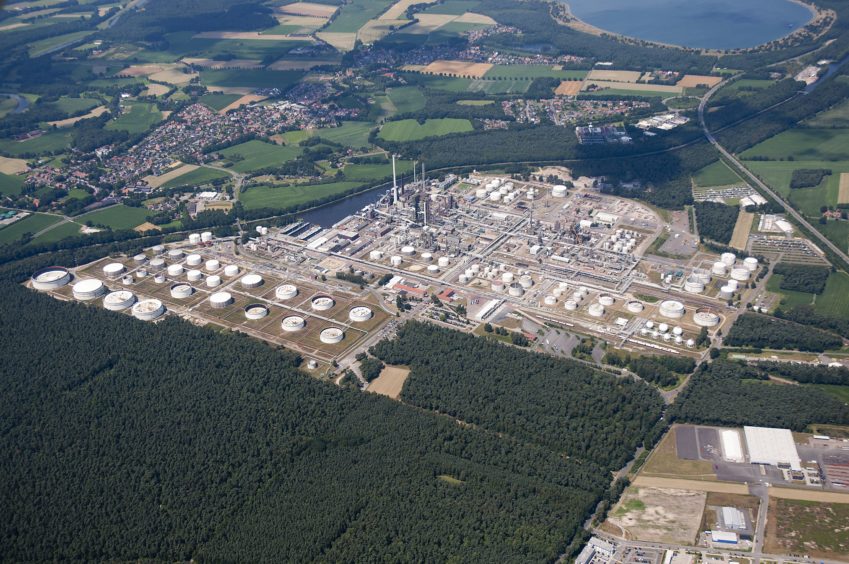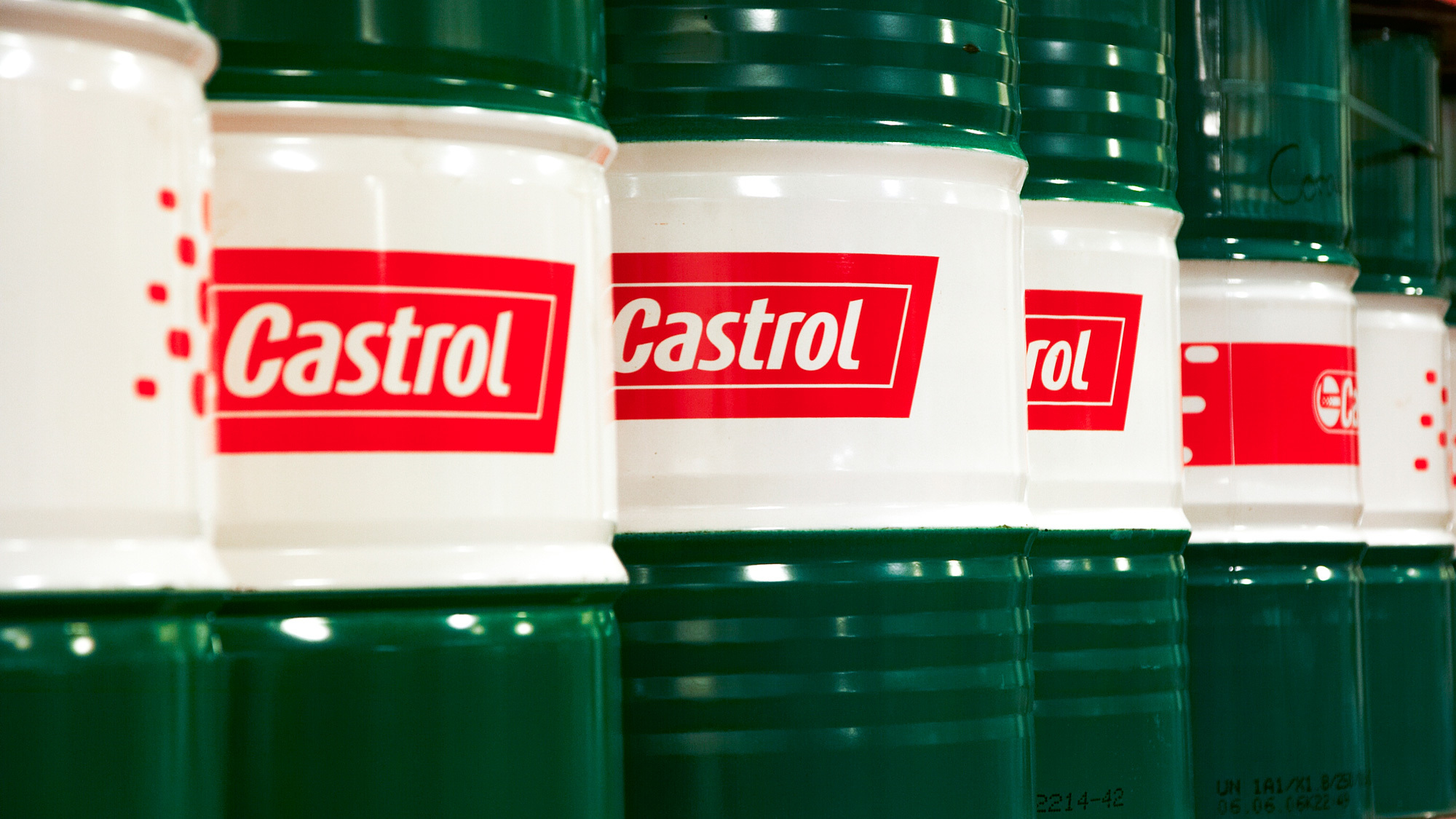
BP and Danish energy firm Orsted will team up to develop large-scale green hydrogen production at a refinery in north-west Germany.
They intend to build a 50 megawatt electrolyser at the Lingen facility and are working towards a final investment decision in early 2022.
The project could be operational by 2024.
Green hydrogen is made by the electrolysis of water using renewable power, producing zero emissions.
The electrolyser at Lingen will powered by renewable energy generated by an Orsted wind farm in the North Sea.
It should produce almost 9,000 tonnes of green hydrogen a year, enough to replace around 20% of the refinery’s current “grey” hydrogen consumption.
Grey hydrogen is produced by reforming natural gas, which results in carbon dioxide emissions.
Both companies eventually hope to build more than 500MW of renewable-powered electrolysis capacity at Lingen.
This could provide green hydrogen to both meet all the refinery’s hydrogen demand and provide feedstock for potential future synthetic fuel production.
Dev Sanyal, BP’s executive vice president for gas and low carbon, said: “Hydrogen will have an increasing role to play in meeting the energy demands of a decarbonizing world.
“And we are determined to build a leading position in this emerging industry.
“Bringing together Orsted and BP, Lingen Green Hydrogen offers the opportunity both to accelerate significant emissions reduction in our refinery and build experience of large-scale green hydrogen production and deployment.
“This has the potential to play an important role in the development of a hydrogen economy, in Germany and beyond.”
Martin Neubert, executive vice president and chief executive of offshore wind, for Orsted, added: “Heavy industries such as refineries use large quantities of hydrogen in their manufacturing processes.
“They will continue to need hydrogen, but replacing the current fossil-based hydrogen with hydrogen produced from renewable energy can help these industries dramatically lower their CO2 footprint.
“But first, renewable hydrogen has to become cost competitive with fossil-based hydrogen, and for that we need projects such as this with BP’s Lingen refinery which will demonstrate the electrolyser technology at large scale and showcase real-life application of hydrogen based on offshore wind.”
BP and Orsted have together applied for funding from the EU Innovation Fund – one of the largest funding programmes for innovative low-carbon technologies, focusing particularly on energy intensive industries.
The Lingen Refinery processes about five million tonnes of crude oil a year, 100,000 barrels a day, producing fuels, heating oil and chemical feedstocks.
In 2018, Lingen conducted the world’s first trial of green hydrogen in a fuels refinery.
Recommended for you

